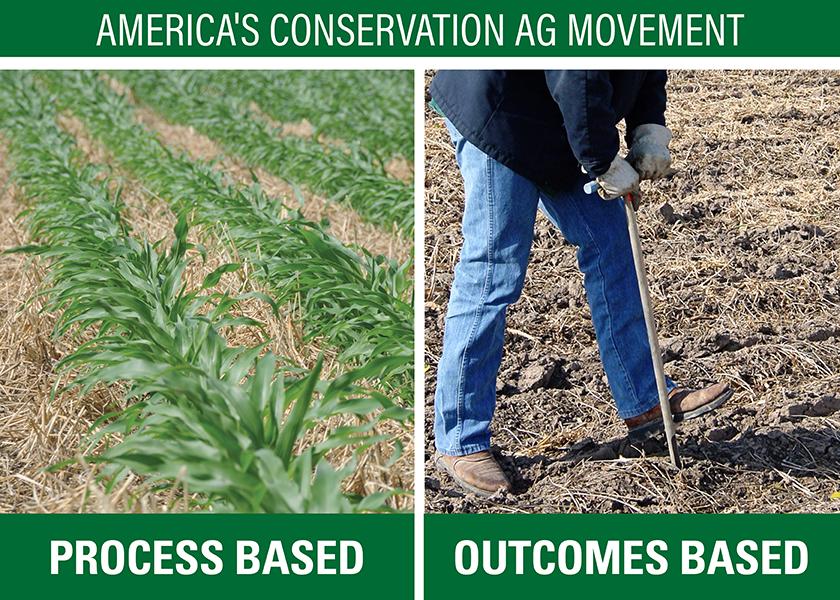Two Ways to Be Paid for Carbon

Understand how and why you are paid
When researching a carbon market, fully understand the payment basis, advises Ray Massey, University of Missouri Extension economist. Below are the various ways farmers are compensated. Some pay per acre, per carbon ton sequestered or per company credit, depending on specific processes or outcomes. Massey also recommends confirming under what, if any, circumstances you would have to return payments received for carbon credits.
Process Based
You do the agronomic activity, such as no-till or cover crops and get the credit. Markets using this method include Bayer and Farmers Business Network. Or companies base payments on models that use input from farmer activities. Markets using this method include Indigo Ag and Nori.
Outcomes Based
You achieve outcomes, such as increased soil organic matter, which are measured and verified. Markets using this method include Ecosystem Services Market Consortium, Corteva and Granular.
Scan to visit our Carbon Innovation Center.







